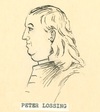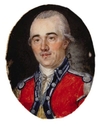in the late 18th and early 19th centuries. In this he was unique among Maritime Methodist clergy, his influence stemming from the fact that he was not settled by the district on different circuits at
.
In 1809 McMillan increased his holdings in Grenville and Templeton through purchase and the lease of crown and clergy reserve lots. By November 1809 he had invested heavily in mills in Lochaber
acquired them, and in return for a promise by the government to concede the clergy reserves within their boundaries, McCallum had his Sherrington holdings converted to seigneurial tenure as the seigneuries
of Assembly shows him to have been a loyal reformer. He supported the reform position on the clergy reserves, the charter of King’s College, and the alien question. He also voted for resolutions
Westminster Confession. Cock knew, as MacGregor did not, that the settlers’ alternatives to the ministrations of a few regularly ordained clergy lay in the occasional religious services provided by enthusiastic
clergy, little assistance could be tendered. Still hampered by disruptions which the British conquest had precipitated [see Jean-Olivier
Murray* in 1763 and repeated to his successors. Protestant schools and provision for the support of schoolmasters and clergy by glebes were to have been the means of accomplishing these ends, but the
Reverend Salter Jehosaphat Mountain as garrison chaplain. It seems to have been the practice for chaplains to assume other clerical duties in order to supplement their income and support the local clergy
Mills]. Although the Catholic clergy generally considered the new school system a threat, the local parish priest, Bernard-Claude
representative of his constituency. His moderate position regarding the clergy reserves steered directly and reasonably between the tory and reform camps. Most reformers by this time advocated the sale of the
eligibility of applicants for leases of clergy and crown reserves, and in most cases he had a hand in writing the applications. He also warned the government of squatters or timber thieves on crown land in
of the house, the intestate estates bill, the libel bill, and the clergy reserves. These were all provincial, as distinguished from local, issues; as such, they are the first on record for Middlesex
Constitution of the Clergy – termed by him an “iniquitous law” – he refused to do so and with another Spiritan priest, Jean-Baptiste Allain
example of his superior, Jacques-André Émery, and his confrères, he refused to take the oath of loyalty to the Civil Constitution of the Clergy. In the spring of 1791, when the bishops who had taken the
Collège de Valognes.
During the French revolution Le Courtois refused to take the oath of allegiance to the Civil Constitution of the Clergy imposed
schoolmaster, which is a little too dependent on the whim [of the] clergy.” Ryland made no reply, a silence that had the effect of dampening Labadie’s enthusiasms, or rather of removing him from the sphere of
of the colonial and imperial governments. Salaberry’s drawing-room became a favourite place for members of the seigneurial nobility, the clergy, and the government to meet. The paternalistic Salaberry
.
Despite the royal instructions there were as yet no well-defined procedures for granting lands or laying out the clergy and crown reserves, nor were the fees to be paid established. Not until the
at the Séminaire de Nantes in 1790. Having refused, like the other Sulpicians, to take the oath of loyalty to the Civil Constitution of the Clergy, he left Nantes for Bilbao, Spain, on 15 Sept
always a problem – on one occasion he walked upwards of 30 miles to preach at an isolated settlement – and contact with his fellow clergy was rare, something he had hoped would change with the






